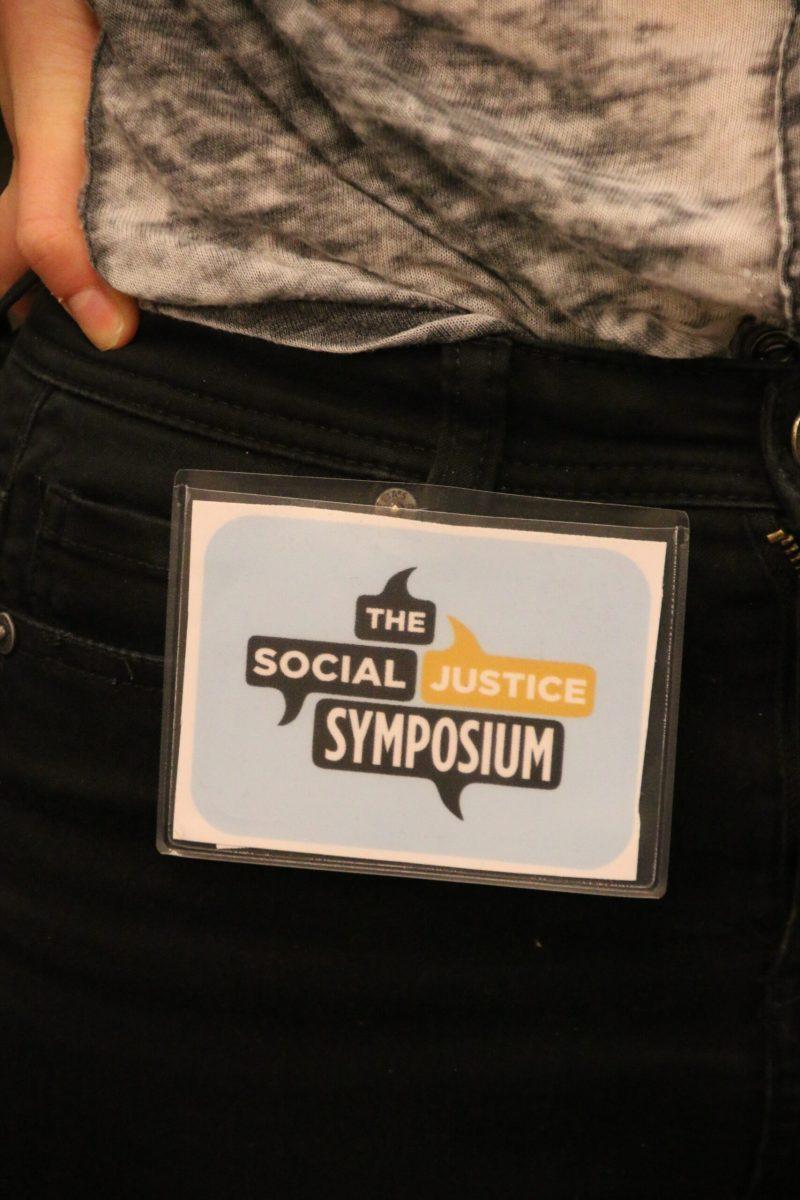
About 70 students from different aspects of MU campus life came together to participate in the annual Social Justice Symposium on Feb. 24.
The Social Justice Symposium works each year to foster skills of activism, advocacy and awareness through workshops and a keynote speaker.
Workshops focused on various topics such as inclusion, bisexuality, birth control and systematic oppression. Participants were able to attend four of the 12 workshops offered.
This year’s keynote speaker was Dr. Christina Carney, an MU assistant professor in women’s and gender studies and black studies. She researches and writes about the history of queer black women.
In her speech, Carney spoke about issues such as intersectionality, ableism and how arming teachers would affect black students. She emphasized the importance of having a conversation about social justice issues.
“We don’t talk about disadvantaged populations, especially in this current historical moment,” Carney said. “We don’t talk about those people because they are seen as disposable in our society.”
The event was organized by the Department of Residential Life, the Office of Student Engagement, the Gaines/Oldham Black Culture Center, the LGBTQ Resource Center, the Multicultural Center, the Relationship and Sexual Violence Prevention Center and the Women’s Center.
This year, the organizers of the event focused more on the breakout sessions and the keynote speaker rather than small groups as in previous years. Jayme Gardner, coordinator of leadership development in the Office of Student Engagement, said the organizers really tried to hone in on what made the event successful last year.
The organizers hope to expand the symposium by instituting a student committee next year.
Gardner believes the symposium should push students out of their comfort zones by presenting them with new ideas.
“I hope [students] know a little more about something that they don’t personally experience,” Gardner said. “I think that’s the ultimate goal: to allow students who don’t hold certain identities to interact with people that do or to learn more about that and learn more about being better leaders.”
She feels that learning about social justice issues is essential for being an active leader.
“I teach leadership development, and I think that you can’t really call yourself a leader on campus, or in the world, without understanding the tenants of social justice,” Gardner said.
Carney believes the symposium acts as a resource for discussion that you can’t necessarily have other places.
“I think this symposium illuminates a lot of marginalized issues for folks who already have an interest in these topics, but don’t really have a community,” Carney said. “The good thing about this symposium is that you actually have people you can rely on as allies, teachers, listeners, instead of thinking about these issues without any support and feedback.”
Many students attended to learn more about social justice and apply it to their jobs or lives in specific ways.
Junior M.C. Cross heard about the symposium through their work as a peer educator at the RVSP Center.
“[I hope to learn] better ways that we can help our community, a college campus with these particular issues, and maybe onward, as we graduate, how we can help whatever community that we go into with these issues,” Cross said.
Freshman Nathaniel Hartman works for the LGBTQ Resource Center and said he participated to learn skills to improve his community work at his job.
Several members of the Mizzou Black Men’s Initiative, including freshman Brian Amaonye, went to the symposium as well.
“[I wanted to learn] more about social justice and build a better relationship with my brothers in MBMI,” Amaonye said.
Many students attended to learn more about social justice issues.
Freshman Molly Stawinoga said she attended the symposium to find out more about what community organizations’ viewpoints were and to feel empowered.
“I really just want to learn about other ways of life and perspectives,” Stawinoga said. “I’m informed on issues but maybe not different emotional views of the issues because I’m just seeing from my viewpoint.”
All of the attendees had one thing in common: They were excited to be there and eager to delve into social justice issues.
“I feel very passionately about many issues that affect different segments of the population,” Stawinoga said. “I really believe in equality and justice, and I want everyone to have the same opportunities in life.”
_Edited by Stephi Smith | [email protected]_